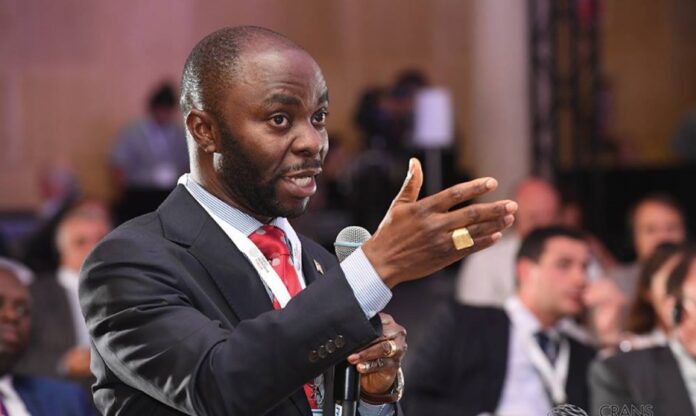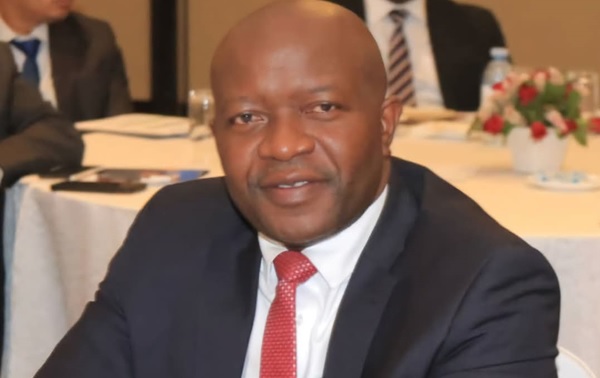MONROVIA, LIBERIA – Deputy Controller of the House of Representatives, Hilary P. Sackie, who also serves as President of Paynesville FC, is at the center of a growing controversy following allegations that he placed several private football team players and officials on the House of Representatives’ supplementary payroll. The accusations were first brought to public attention by investigative journalist James Samuel Goodday Flomo, who described the alleged act as theft of public funds.
“If Liberia were a serious country, the anti-corruption institution would have already summoned this man for investigation because he stole from the government of Liberia,” Flomo wrote on his Facebook page. He further called on the Liberia Anti-Corruption Commission (LACC) and the new leadership of the House of Representatives to investigate Sackie and, if found guilty, compel him to refund the stolen money.
The allegations have generated public interest, with differing opinions emerging. George Mbayo, a commenter on Flomo’s post, argued that it would be administratively impossible for the Deputy Controller to unilaterally place individuals on the government payroll without the consent and approval of his superior. “Funds have to be allocated and approved monthly for their salary payments,” Mbayo emphasized.
Despite the skepticism, Flomo doubled down on his claims, releasing updates on the alleged scandal. He reported that a team linked to Representative Marvin Cole has confirmed they are finalizing a list of individuals whom Deputy Speaker Fonati Koffa allegedly placed on the supplementary payroll. According to Flomo, many of these individuals have never set foot on Capitol Hill but continue to draw salaries from government funds.
Adding to the controversy, Flomo detailed a troubling salary disparity in the supplementary payroll. He alleged that some directors earn $1,200 monthly, while others recommended by Speaker J. Fonati Koffa earn as much as $2,000. The individuals in question include Hillary Koffa, Anderson Chea, and Bomi G. Berti, all reportedly earning $2,000 per month. Anderson Chea, who previously served as the Deputy Managing Director of LITELCO, was also highlighted as an example of questionable payroll practices.
Flomo further claimed that all Representatives were instructed to submit four names for inclusion in the supplementary payroll, raising concerns about whether these appointees are actively working for the government. He named specific individuals, including Sabannah G. Kermue and Solomane S. Swaray, as benefiting from the payroll without performing any government duties.
Sabannah G. Kermue, reportedly associated with Representative Cole’s wife’s organization, Ninekpoma, has allegedly never worked on Capitol Hill. Similarly, Solomane S. Swaray, the former Development Superintendent of Bong County, is also accused of being unjustly added to the supplementary payroll.
Meanwhile, all efforts by Smart News Liberia to get a response from Mr. Sackie have not materialized, as he was unreachable.
Flomo has called on the new leadership of the House of Representatives to conduct a comprehensive audit of the supplementary payroll before any further salary payments are made. According to him, such an audit is critical to restoring transparency and accountability within the legislative branch.
The scandal comes at a time when Liberia’s governance systems face heightened scrutiny over issues of corruption and mismanagement. As the allegations continue to reveal, public pressure mounts on the House of Representatives and anti-corruption bodies to take swift and decisive action.
The office of Deputy Speaker Thomas Fallah and the House of Representatives has yet to issue an official response to the allegations. Meanwhile, civil society groups and anti-corruption advocates are calling for thorough investigations to ensure accountability for any misappropriation of public funds.
The case emphasizes the persistent challenges facing Liberia’s public financial management systems, particularly in ensuring that government payrolls are free from manipulation and corruption. With the allegations now in the public domain, all eyes are on Liberia’s anti-corruption institutions to determine whether they will act decisively or allow this scandal to fade into obscurity.







